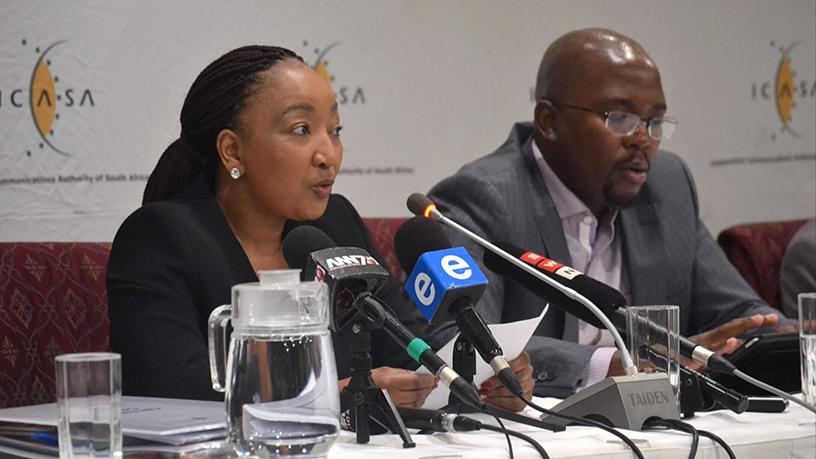
The Independent Communications Authority of South Africa (ICASA) is calling on all stakeholders to actively participate in the consultation process on the draft call termination rates.
The regulator says this is a key development in the authority's broader programme to reduce the cost to communicate.
The draft regulations seek to further reduce mobile termination rates, the price mobile and fixed network operators charge each other for terminating calls between networks.
This morning, ICASA hosted a roundtable on its findings on a document on priority markets in the electronic communications sector.
ICASA CEO Willington Ngwepe and councilor Botlenyana Mokhele were at the event. According to Ngwepe, the regulator wants to identify markets "prone to ex ante regulation in order that they can be subject to market review and regulatoty intervention".
He added that ICASA seeks to provide regulatory predictability and certainty for the market. It also wants to allocate resources efficiently and effectively, focusing on market reviews that have the potential to yield material impacts in terms of promoting competition, delivering benefits for consumers and achievement of government policy objectives.
The draft call termination rates were published on 16 August. The deadline for submission of written comments is 7 September.
The authority intends to hold public hearings upon receipt of written comments to further engage on the input received on the key aspects and proposals of the draft regulations. The effective date of the regulations (once finalised) will be 1 October.
According to ICASA, the benefits of the regulation of wholesale call termination rates for consumers has been proven over the past eight years.
It notes that since 2010, the termination rates have been reduced by approximately 90% and this has contributed to the significant decline in retail rates over the years.
It is against the above context (and in line with the requirements of the Electronic Communications Act No 36, 2005) that the authority's recent review of the wholesale call termination market was undertaken.
The review found the wholesale call termination market still remains ineffectively competitive, is characterised by significant market players and requires imposition of pro-competitive remedies in the form of price controls.
To this end, ICASA says, the draft regulations propose a glide path period where a charge for terminating a call on mobile and fixed location would be 12c and 8c respectively, from October 2018 to September 2019; 10c and 5c for the period October 2019 to September 2020; and 9c and 3c from October 2020 onwards.
The authority used both top-down and bottom-up cost models to inform its determination of the 'cost' for call termination in this regard. It says it looks forward to receiving representations from stakeholders in order to assess and determine what the reasonable level for termination rates for the duration of the glide path (and from October 2020 onward) should be.
The draft regulations also propose asymmetry for small players and new entrants for the duration of the three-year glide path.
The asymmetry for mobile services is proposed to be at 5c from October 2018 to September 2020, and 4c from October 2020 onwards. Asymmetry for fixed services is proposed to be 1c from October 2018 to September 2020 and fall away completely from October 2020 onwards.
Similarly, the authority looks forward to receiving representations from all stakeholders on the justification for the granting of asymmetry, whether or not it should be granted for the duration of the glide path period (and/or beyond) and the reasonable level for such asymmetry.
ICASA will undertake a review of the markets for wholesale voice call termination services to which these regulations will apply, as well as the effectiveness of competition and the application of pro-competitive terms and conditions in these markets when the authority deems it necessary but not earlier than three years from the date of publication of the final regulations (ie, with effect from October 2021).
Share